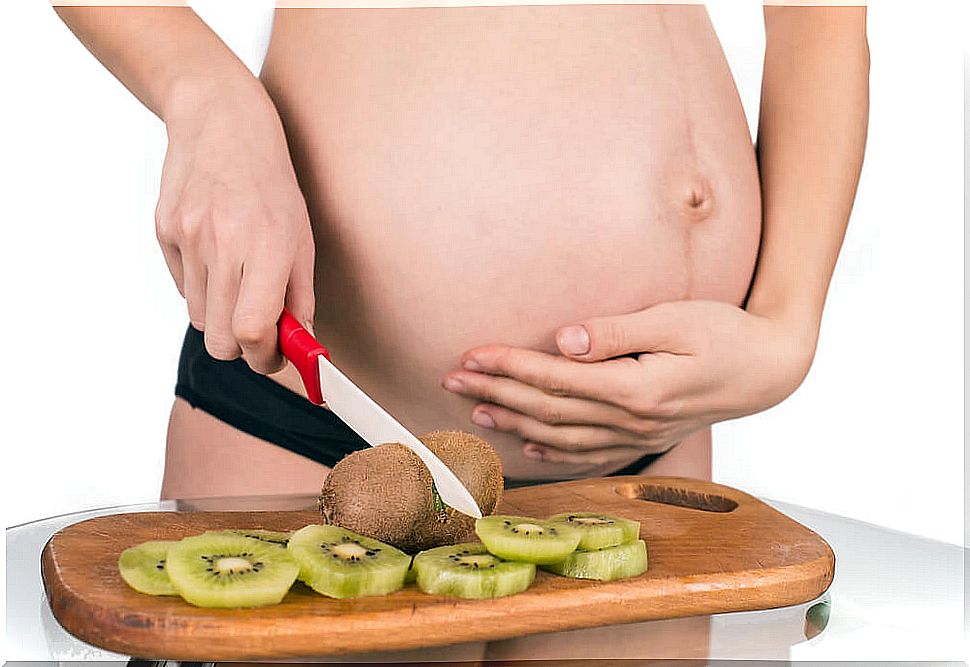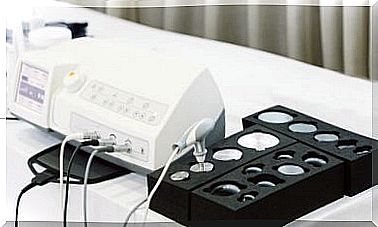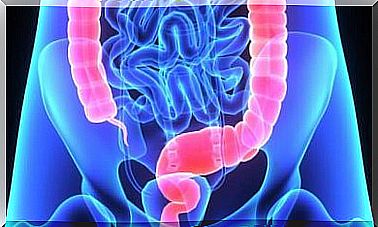Lack Of Appetite In Pregnancy
Worrying about not feeling hungry during pregnancy is more common than we think. Hormonal, physical and emotional factors can cause poor appetite. Simple actions can help you fight it and consume what is required.

Weight gain is what we women fear the most when thinking about pregnancy, but lack of appetite in pregnancy is more common than we think. However, there are reasons for this and ways to cope, to ensure that we eat what the body and the baby need.
It may happen that just a few days after receiving the great news, we do not tolerate even passing in front of the favorite restaurant. Then the fear is displaced by another: I am not hungry and I must feed myself not for two, but for two.
During those 40 weeks we experience different symptoms and sensations. We don’t just feel the hiccups or the movements of the baby inside the womb. Hormones and body changes also do their thing, generating changes in eating habits.
Lack of appetite in pregnancy… Why doesn’t it make me eat?
Every woman is different and that is why every pregnancy is different. You may be one of those who have cravings and eat strange combinations like lentils with jelly. Perhaps you are one of those who do not perceive changes. But if you are one of those who rather suffer from a lack of appetite in pregnancy, do not worry because it is most likely due to very natural causes.
The reasons for lack of appetite during this stage of motherhood can be very varied. We are experiencing various physical, chemical, and emotional changes over the course of nine months.
Hormones up

The so-called pregnancy hormone, human chorionic gonadotropin (HCG), is only present in the blood during pregnancy and is responsible for causing nausea and vomiting. These complaints are likely to be the main causes of poor appetite in pregnancy, especially during the first trimester.
HCG also stimulates the production of other hormones, estrogens and progesterone. The latter can also contribute to the loss of desire to eat, as it slows the digestion process.
Changes inside and out
As the body prepares to welcome the baby in the womb, there is a relaxation of the stomach muscles. This is another possible cause of poor appetite in pregnancy. General malaise and fatigue can also play a role.
In addition, between the second and third semester there is a slowdown of the digestive system. The pressure caused by the growth of the uterus and the size of the fetus in the lower intestine slow down digestion, which can affect your desire to eat.
You can also reduce the desire to eat food due to constipation or gas that some suffer and cause gastric discomfort, as well as heavy digestions. Likewise, heartburn can make us inappetent.
Hot seasons
While we carry the baby inside we can feel more body heat. If we add to that the fact that some part of the pregnancy coincides with seasons of high temperatures such as summer, it is quite likely that we do not feel like a bite.
Likewise, we can be prone to suffer with more intensity the typical conditions of the seasonal changes such as spring asthenia. That “low” that we feel before the changes that spring brings can cause symptoms such as fatigue.
When emotions rule

The great hormonal changes we go through make us more sensitive. If we add to that the anxiety and stress that we experience while waiting to have the baby in our arms, pregnant women can suffer a carousel of feelings.
This emotional picture can be a psychological reason for lack of appetite. The mood swings that pregnancy brings with it can take us away even from the usual favorite dishes.
What to do in the absence of appetite in pregnancy?
As we saw most of the causes are due to normal and natural reasons. Therefore, there are simple ways to cope, without being a source of stress or shocks, which prevent us from enjoying pregnancy or the pleasures of eating.
Doctor first
The first thing we must do is inform the doctor, who can rule out other causes of greater importance. It will verify with simple and common medical tests, that mother and baby are consuming the vitamins and minerals necessary for their good health.
In addition, a doctor is the one who could determine if it is necessary to supplement your diet with some specific supplements. Remember that at this stage we must be more alert with what we consume. So the guidance of a specialist is the best guide.
Slowly
Eating small portions several times a day is ideal. It is advisable to eat something light every two and a half to three hours. This way you go “making stomach” and you are not left with a feeling of complete satiety. You also help activate digestion and metabolism, as well as help prevent heartburn.
If you suffer from morning sickness, take into account a common recommendation, which is to have some bread or crackers near the bed to take just one bite as soon as you wake up.
What is and what is not
Learn to identify the foods that cause you discomfort and eliminate them from your shopping list and menu. On the contrary, detect the ones that provoke you the most and that when ingested do not cause you repulsion or heaviness, and include them in your diet.
Make sure they are natural or little processed foods. Skip heavy, salty foods with lots of sauces, saturated fat, and fried foods. The decisions you make regarding your diet in the first months are essential to overcome the discomforts of the state of pregnancy.
Fruits and vegetables
Your menu has to be full of fruits and vegetables. They are the ones that provide the most nutrients, generate less discomfort and provide more fluids to meet the body’s requirements.
There is such a variety of legumes and vegetables that there are no excuses to enrich your menu with different options. Also, fruits are always the best option for snacks. You can take them with you, they refresh you and being a rich source of fiber they contribute to better digestion.
Plan
It will help to plan your menu weekly or at least daily, starting the night before. When you get up you will already know what you will eat for breakfast, snacks and the rest of the meals.
Eat a good breakfast, eat less for lunch and dinner in the cooler hours of the night. Always carry something light in your bag, so as not to resort to street options and skip meals. Aim to eat something every three hours, even if you don’t have an appetite.
Prepare foods that you can have refrigerated ahead of time. Avoid doing very elaborate or tiring cooking, as it is sure that later it will not provoke you or even smell them. Vary the menu, find different ways to prepare food so that you don’t get bored of eating it either.
Hydrate well
Surely your doctor already told you that during these nine months you must be well hydrated, to put the kidneys to work and avoid fluid retention. Well, this is also a way to beat the lack of appetite in pregnancy .
Always prefer water, herbal teas and low-sugar natural juices. Also, if you are living your pregnancy with high temperatures, look for options such as gazpachos and smoothies that include vegetables for your meals or snacks.
Avoid sedentary lifestyle

Walking, yoga, or doing some low-impact exercise will help your digestive system work better. In addition, the correct postures when sitting and eating also help the digestion process. Exercise generally awakens the urge to eat, which you need to deal with poor appetite in pregnancy.
Of course it is not about abusing with exercise. Respect and value your moments and days of rest. When lying down, it is preferable to be half seated, not fully reclined, to avoid reflux and a burning sensation in the stomach.
Final recommendation
The important thing is that you always keep in mind that the body is undergoing natural changes that are necessary for the proper development of your pregnancy and the baby. The discomforts that attack you in the first trimester and do not let you enjoy your meals, soon pass. Then a “repowering” appetite may even return, which must also be controlled with good eating habits.








